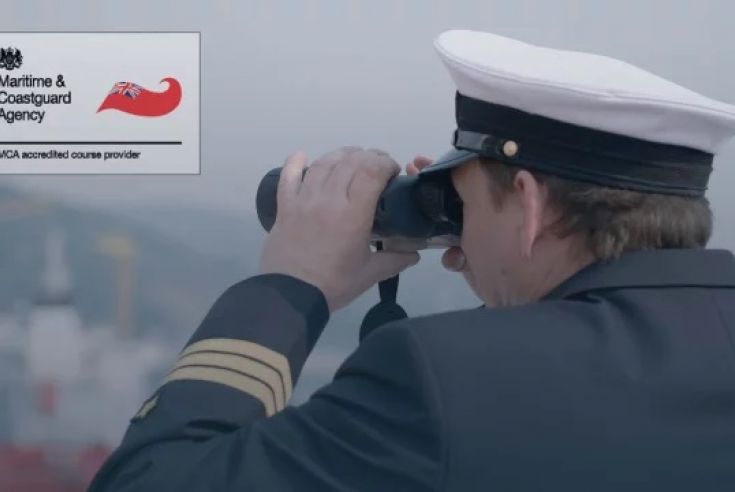Yachtmaster Offshore - 5 Day Prep/Exam (RYA, USCG or other)
D and B Services, 3 Boulevard d'Aguillon,, 06600 Antides, France
1,930 €
EnquireSchool D & B Services
Location D and B Services, 3 Boulevard d'Aguil...
Duration 5 day(s)
Dates Contact for more info
Accommodation None Included
The tuition consolidates existing knowledge and abilities.
The definition of a Yachtmaster (Offshore) is: ‘A yachtsman or woman competent to skipper a cruising yacht on any passage that can be completed without the use of astronavigation’.
Yachtmasters should be able to enter any well-charted harbour for the first time, with sufficient depth, by day or night.
Pre-exam Experience:
As with any exam, the more practice you have beforehand, the more confident you will feel. Before your exam, be more adventurous than the usual weekend trip to your favourite anchorage. Enter some new harbours to refine your pilotage. Attempt the occasional night entry and be aware of the problems. There is no requirement for you to attend an RYA course before your exam. However, it is often worth receiving some tuition, if only to find out your strengths and weaknesses.
We offer exactly that exam preparation service.
What Happens During an Exam?
Your RYA examiner will meet you onboard and talk you through the plan for the day. They understand that you could be nervous and will do their best to allay your fears and make sure you are clear about what they want you to do. They are there to find out what you can do, rather than pick holes.
You will be asked to undertake a short passage, but you may have to plan a longer one. In general, you should skipper the yacht in your normal style. If this means putting the kettle on every half hour, then do it! You must know your position reasonably accurately throughout the exam, but don’t make the mistake of being so busy plotting fixes that you forget to look around you. Often, a quick glance on deck will confirm your position from a buoy or transit. Make sure you know how to use a GPS, but there is no need to over-navigate.
You will usually be given practical problems involving tidal streams and heights. Make life easy for yourself and look them up beforehand – it’s not cheating. Practice a few tidal calculations so you are happy with the methods you are going to use.
Boat Handling:
You need to know how your boat will react, its turning circle and any predictable quirks to its handling. There will be some close quarters manoeuvring, usually in a harbour, to demonstrate your skills at berthing and leaving pontoons, piles or moorings. Sailing yachts will complete this section under power, but make sure you practice manoeuvring under sail too, picking up mooring buoys and short tacking.
Your examiner isn’t looking for first-time-every-time success, but you will need to demonstrate competence and a good understanding of how the boat reacts at slow speed. Don’t hesitate to change sails or reef, if you think it is necessary for the task.
Experience in a variety of conditions will be your biggest help in these situations.
Man Overboard:
Exams almost always include a man overboard recovery exercise. The multitude of methods for this can be confusing, but pick one that works for you and your boat. However it’s done, you must end up with the yacht stopped next to the man in the water. If you’re sailing, check with your examiner whether you should handle the boat with or without the engine.
Safety:
Make sure you understand and follow safety procedures, and give a safety brief. If you decide that harnesses should be worn at night, take your own advice.
Metorology:
Listen to the forecast before your exam and be prepared for questions about the current weather and how this might affect a passage plan. Understand how weather systems influence sea conditions and how to plan based on this knowledge. The type of boat and strengths of your crew can have a bearing on decisions based on the weather, so your examiner may ask you to consider various possibilities. There is rarely a definitive answer, so it is your informed opinions that are required.
Skippering Ability:
This is where your experience and knowledge will really show. Whether you are fully in command of the yacht is the most important assessment that your examiner will make.
A good skipper leads the crew and communicates with them, making sure they understand what is going on and listening to them when they have something to say. They do not shout a stream of commands, leaving their crew in a quivering mess. Quiet competence instils confidence, helping your crew feel safe in the knowledge that the right decisions are being made.
Pre-exam requisits:
50 days, 2,500 miles including at least 5 passages over 60 miles measured along the rhumb line from the port of departure to the destination, Acting as skipper for at least two of these passages and including two which have involved overnight passages. 5 days experience as skipper. (At least half this mileage and passages must be in tidal waters and all qualifying seatime must be within 10 years prior to the exam.), A restricted (VHF only) Radio Operators Certificate or a GMDSS Short Range Certificate or higher grade of marine radio certificate and a valid first aid certificate are also needed. We recommend that you have taken the full STCW BST course – and – where appropriate – our GMDSS GOC course.
I order to get your license commercially endorsed the STCW BST meets the appropriate requirements, additionall you will have to present the PPR course certificate and a medical fitness certificate (ENG1, or simililar).
Examination:
8-12 hours for 1 candidate, 10-18 hours for 2 candidates. No more than two candidates can be examined in 24 hours no more than 4 candidates in a two-day-session.
So, are you ready for your exam?
Useful Information
This is NOT an official RYA Course – however, the successful examination results in a RYA / MCA Certificate of Competency. Course fee includes transportation, food, accommodation AND RYA examination fee!
Please note that the RYA/MCA Yachtmaster Certificate is not a STCW certificate. Those candidates who need a “Master 200 code vessel -STCW II/2” license because they wish to work on non British vessels may obtain this by taking the appropriate MCA oral exam.
ATTENTION:
There are licenses issued by other providers which appear to be “STCW”. The appropriate chapter mentioned on the license has to be either II/2 or II/3 and not A-VI/1 1-4. The latter regulations cover only the basic safety training provisions - BE AWARE!
Summary:
In order to obtain a proper STCW Master’s license, your existing radio licence needs eventually “up-grading”. In total you have to have a medical fitness certificate, all 4 STCW95 BST modules, Yachtmaster offshore shorebased certificate, RYA/MCA Yachtmaster Certificate of Competencey, GMDSS GOC or ROC, the PPR course certificate and a “pass” on the MCA oral exam.



